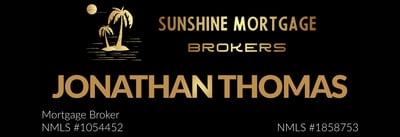Thomas Home Loan FAQs
Get answers to your mortgage questions and simplify your home loan journey today.
Looking for answers to common home loan and mortgage questions to simplify your journey, from pre-approval to refinancing.
What is the first step in applying for a mortgage?
The first step in applying for a mortgage is getting pre-approved. This process involves submitting your financial details, including income, credit score, and debt-to-income ratio, to determine how much you can borrow. Getting pre-approved helps streamline your home search and shows sellers you’re a serious buyer.
How do I know what type of mortgage is best for me?
Choosing the right mortgage depends on your financial situation, homeownership goals, and the type of property you’re purchasing. Our expert mortgage brokers will walk you through options such as FHA, VA, conventional, and jumbo loans, helping you select the one that offers the best terms for your needs.What is the difference between a fixed-rate and an adjustable-rate mortgage (ARM)?
A fixed-rate mortgage has an interest rate that remains the same for the life of the loan, offering predictable monthly payments. An adjustable-rate mortgage (ARM) has an interest rate that may change after an initial fixed period, which could result in lower initial payments but potential fluctuations in the future. Our team can help you determine which is better based on your financial situation.
How long does the mortgage approval process take?
The mortgage approval process typically takes anywhere from 30 to 45 days, depending on the type of loan and how quickly all necessary documentation is provided. We work hard to keep the process as quick and efficient as possible, keeping you informed every step of the way.Can I get a mortgage with less than perfect credit?
Yes! There are mortgage options available for buyers with less-than-perfect credit, such as FHA loans or subprime mortgage programs. We’ll help you explore options, review your credit report, and find a solution that works for you, even if your credit score isn’t ideal.What is a Home Equity Line of Credit (HELOC)?
A HELOC allows you to borrow against the equity in your home, giving you access to funds for home improvements, debt consolidation, or other financial needs. With flexible repayment terms, a HELOC can be a great option for homeowners who have built up equity over time.Do I need a down payment to buy a home?
While most conventional loans require a down payment, there are some options that require little to no money down, such as VA loans for veterans and USDA loans for qualifying rural areas. We’ll guide you through the available down payment options and help you find the best program for your budget.What are closing costs, and how much should I expect to pay?
Closing costs are fees associated with finalizing your mortgage, including lender fees, title insurance, appraisals, and more. Typically, closing costs range from 2% to 5% of the loan amount, but the exact amount will depend on the type of loan and your location. We’ll provide you with an estimate upfront so there are no surprises at the closing table.
If you have more questions click on the Apply Now and we will be glad to have someone contact you to assist.
Personalized mortgage solutions tailored to your financial needs in Florida. Whether you're buying your first home, refinancing, or seeking the best rates, we offer affordable loan options to help you achieve your homeownership goals.
JONATHAN tHOMAS Mortgage Broker NMLS 1054452
Stay UPDATED WITH OUR NEWLETTER
JT@SMBROKERS.NET
727-999-0315
© 2024. All rights reserved.



Powered by: Sunshine Mortgage Brokers

